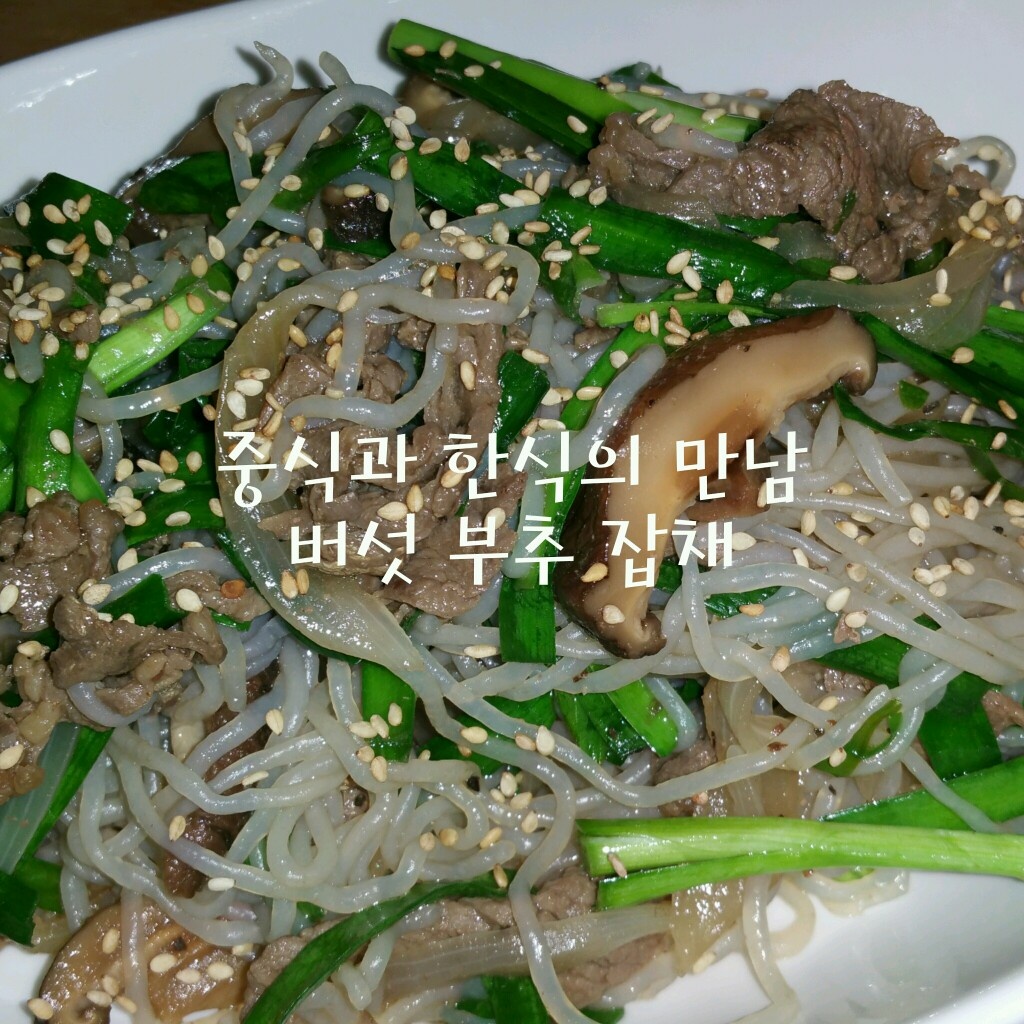
Mushroom, chives, and japchae
Konjac, which is mainly used for diet, is often bought in the form of noodles, but if you put it in a regular japchae dish, it is no different from glass noodles, so it is not only good for children but also good for adults' taste. Today, I made a mushroom chives japchae with konjacchae, which was conceived from Chinese chives japchae.
4 serving
Within 30 minutes
EasyFusion집밥er
- Ingredients
-
-
a silgon drug200g
-
hochuchu1pack
-
Shiitake mushroom10ea
-
pork for vegetables300g
-
onion200g
-
Ginger3ea
-
Soy sauce1t
-
Oyster sauce3T
-
Cheongju1t
-
Saltsuitably
-
ground peppersuitably
-
Sesame oil1T
-
red pepper oil
-
Sesame
-
- Cooking Steps
-
STEP 1/12Shred the onions
Wash a bunch of chives that are about the size of a 500 won coin and cut them into similar lengths
Soak shiitake mushrooms and shred them
If you use glass noodles, soak them in lukewarm water for 30 minutes, cut them, and if you use konjac japchae, put a spoon of vinegar in boiling water, blanch them, and then cut them. STEP 2/12I used beef bulgogi persimmon, so you can use japchae meat or pork sirloin. Cut it into bite-size pieces, and then drain the color with a paper towel.
STEP 2/12I used beef bulgogi persimmon, so you can use japchae meat or pork sirloin. Cut it into bite-size pieces, and then drain the color with a paper towel.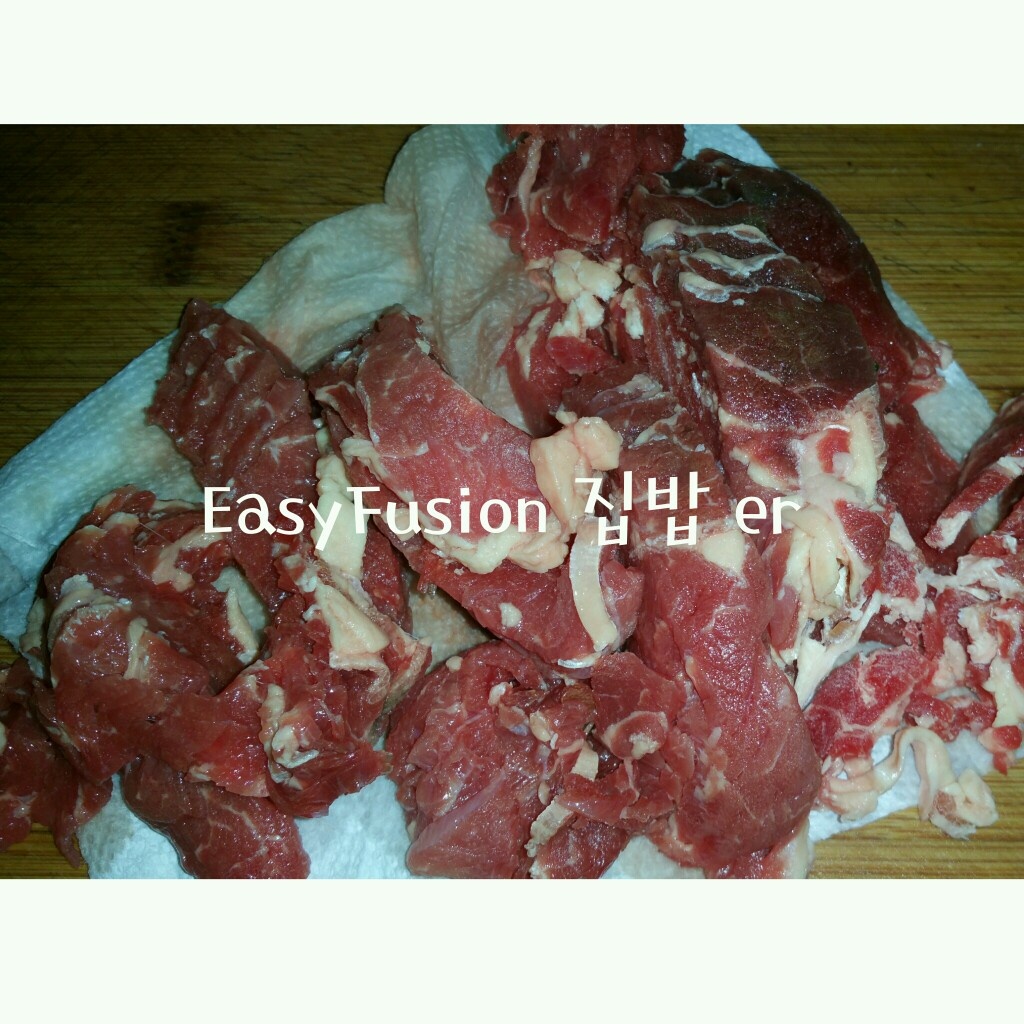 STEP 3/12Sprinkle 1t of refined rice wine, 1t of soy sauce, and pepper powder on the beef that has moderately lost blood and season it.
STEP 3/12Sprinkle 1t of refined rice wine, 1t of soy sauce, and pepper powder on the beef that has moderately lost blood and season it. STEP 4/12Pour 3T of cooking oil on a wok or frying pan and add ginger cut into 500 won coin-sized pieces when heated.
STEP 4/12Pour 3T of cooking oil on a wok or frying pan and add ginger cut into 500 won coin-sized pieces when heated.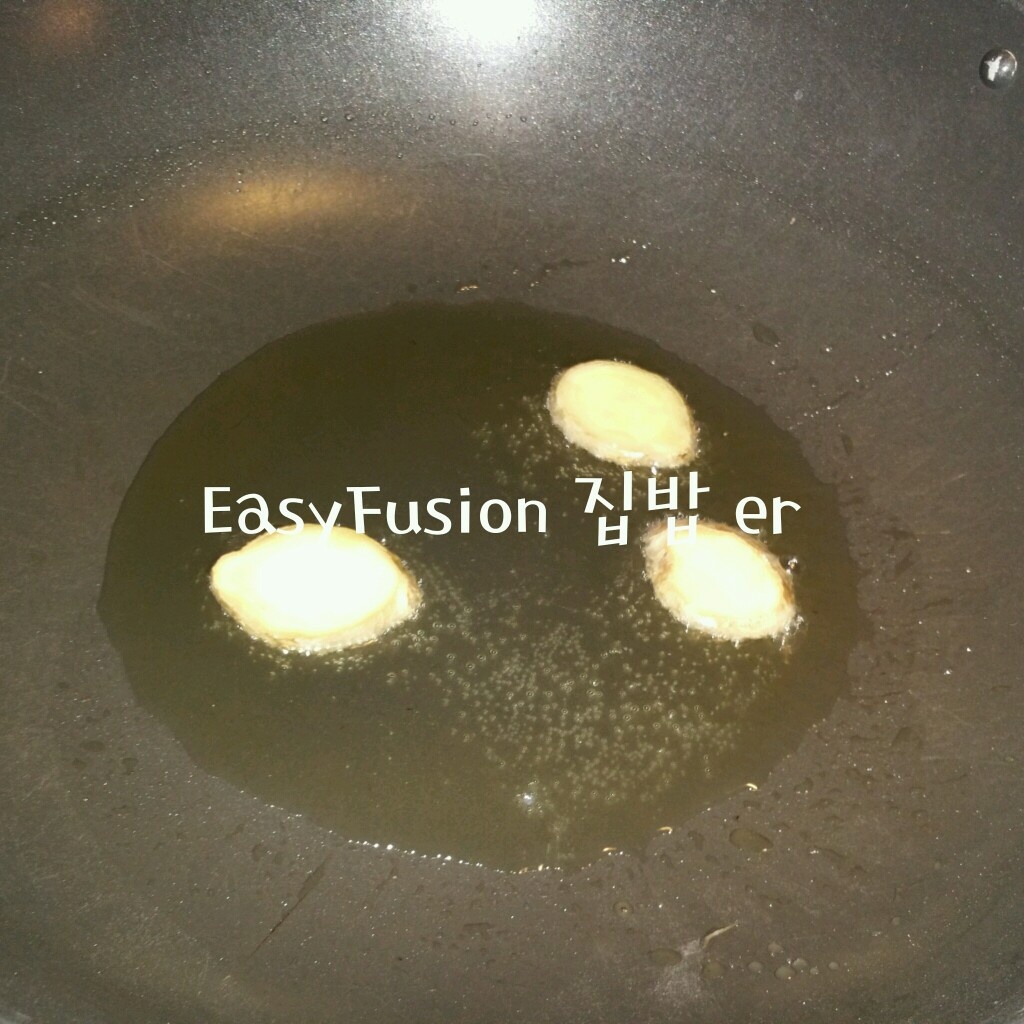 STEP 5/12Allow the ginger pieces to fry over medium heat until golden brown, coat the oil with ginger flavour and remove the ginger before burning.
STEP 5/12Allow the ginger pieces to fry over medium heat until golden brown, coat the oil with ginger flavour and remove the ginger before burning.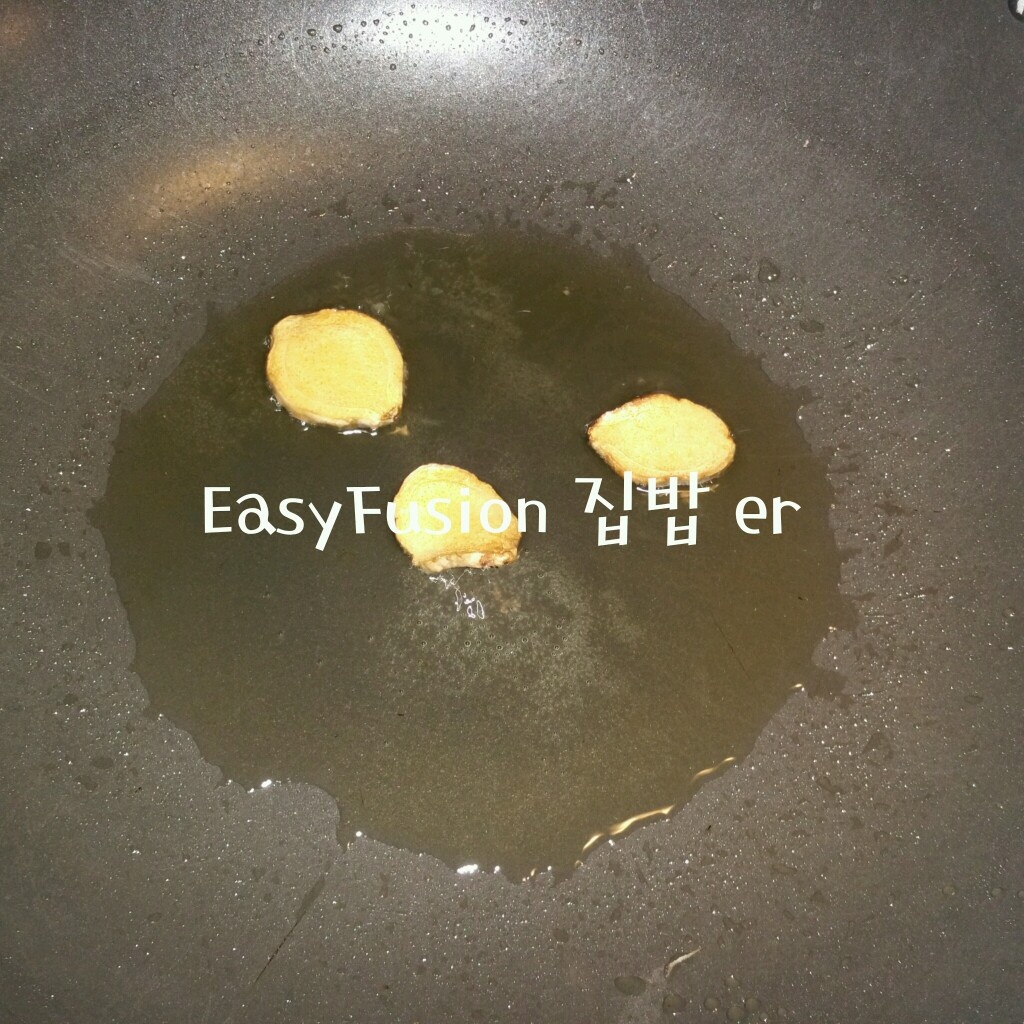 STEP 6/12Stir-fry onions in the oil without ginger.
STEP 6/12Stir-fry onions in the oil without ginger.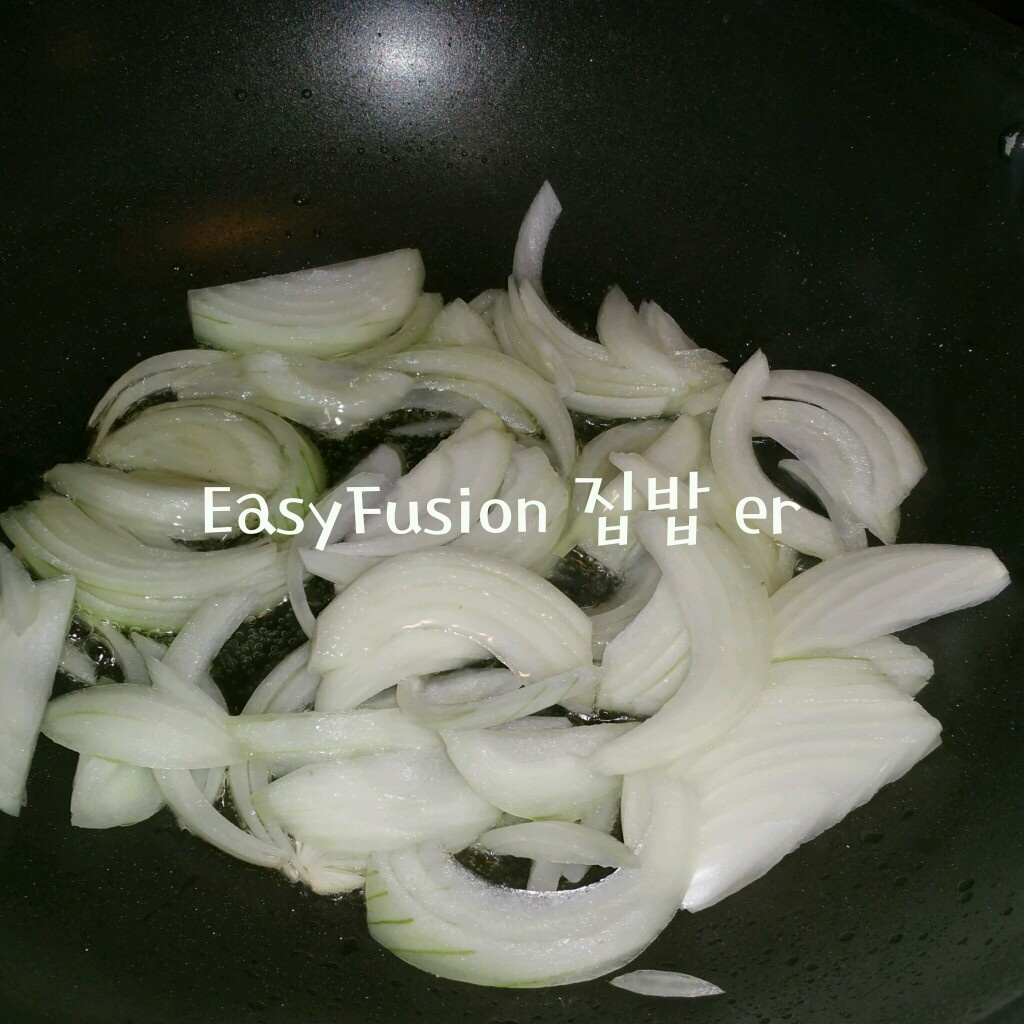 STEP 7/12When the onion is translucent, add beef and stir-fry it so that it doesn't stick
STEP 7/12When the onion is translucent, add beef and stir-fry it so that it doesn't stick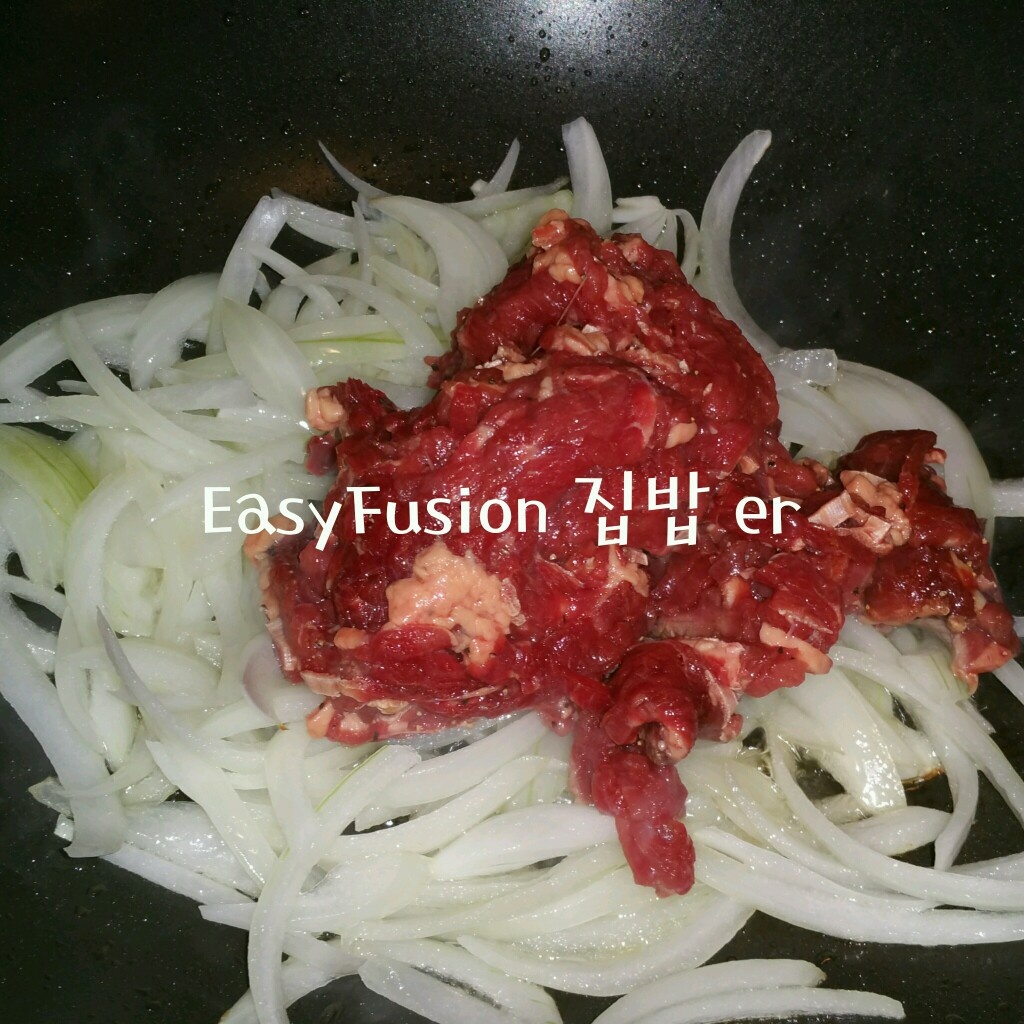 STEP 8/12When the meat is about to be cooked, add mushrooms and stir-fry them
STEP 8/12When the meat is about to be cooked, add mushrooms and stir-fry them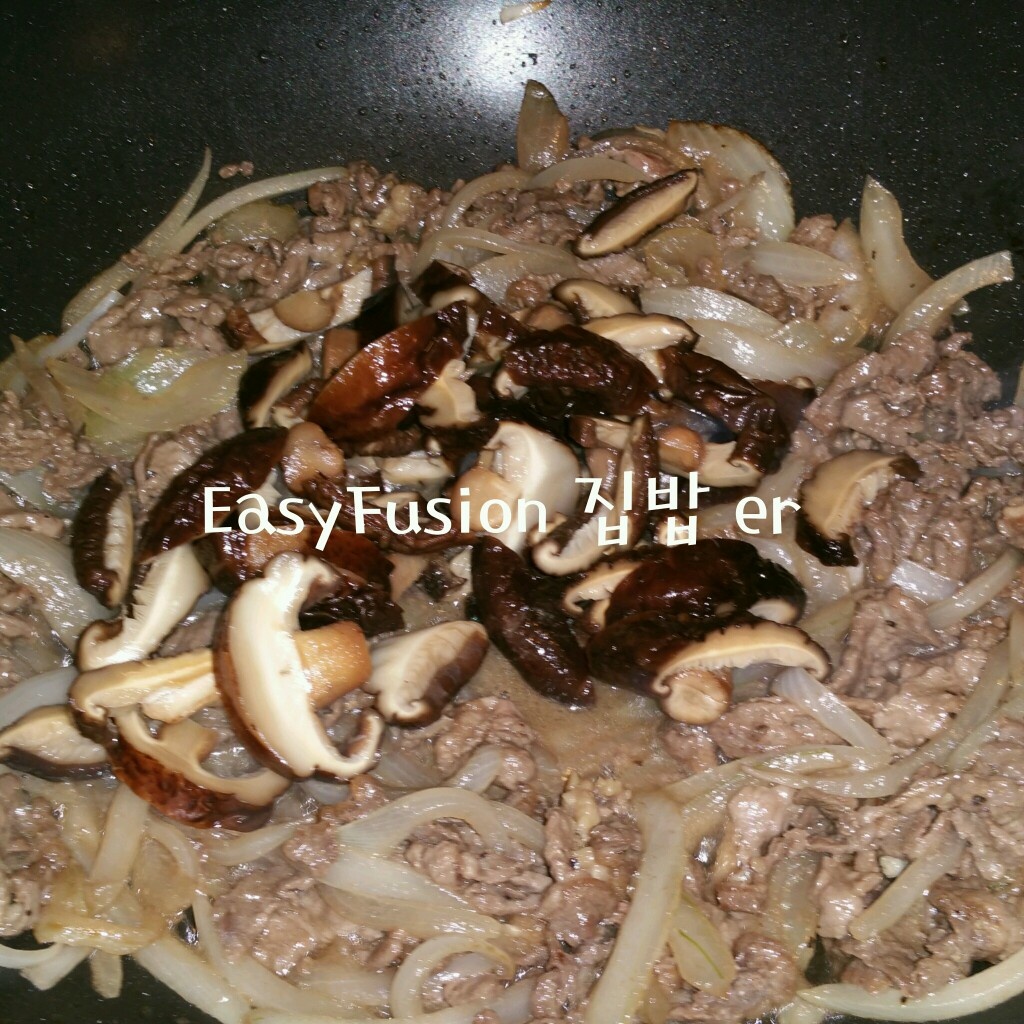 STEP 9/12Add konjac japchae or soaked noodles
STEP 9/12Add konjac japchae or soaked noodles STEP 10/12Add 3T of oyster sauce and sesame oil and stir-fry while mixing well.
STEP 10/12Add 3T of oyster sauce and sesame oil and stir-fry while mixing well.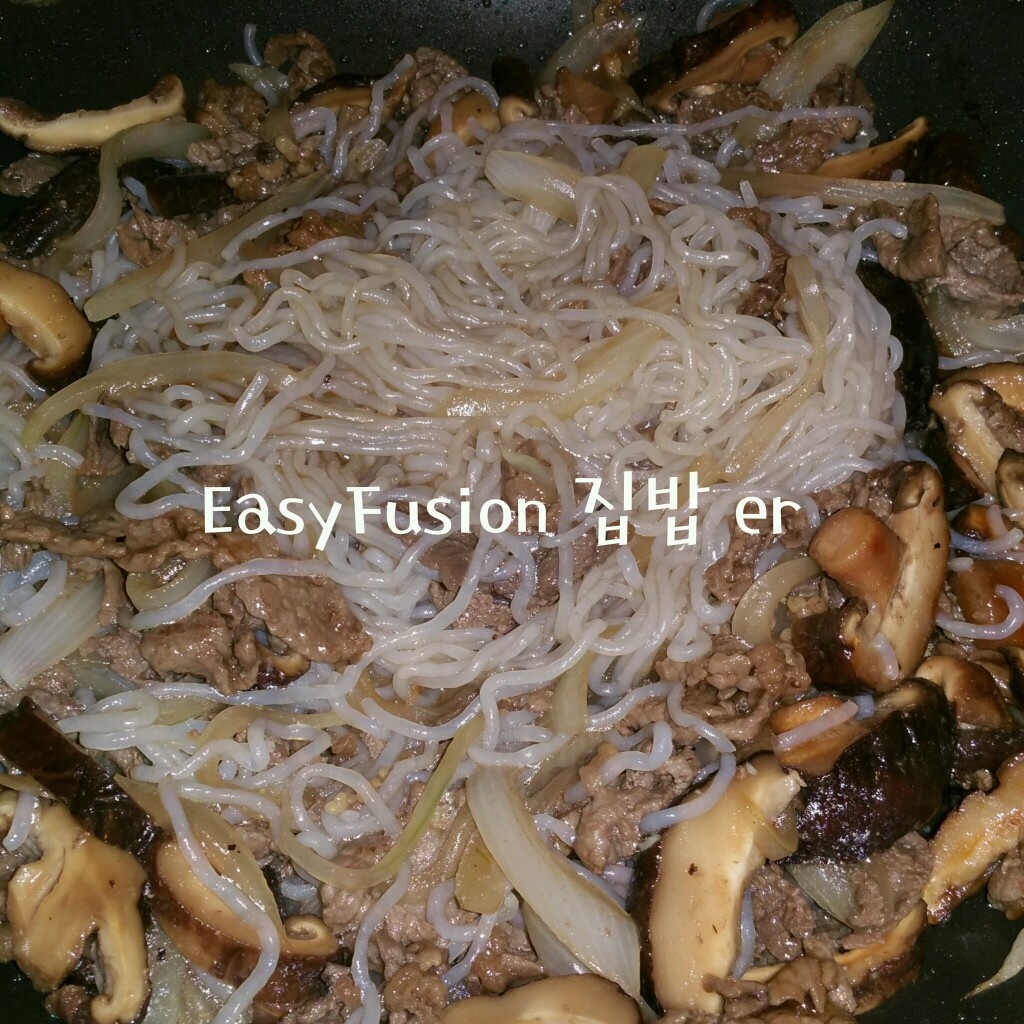 STEP 11/12When the noodles are mixed well with the ingredients, pour chives, sprinkle salt and pepper, and turn off the heat
STEP 11/12When the noodles are mixed well with the ingredients, pour chives, sprinkle salt and pepper, and turn off the heat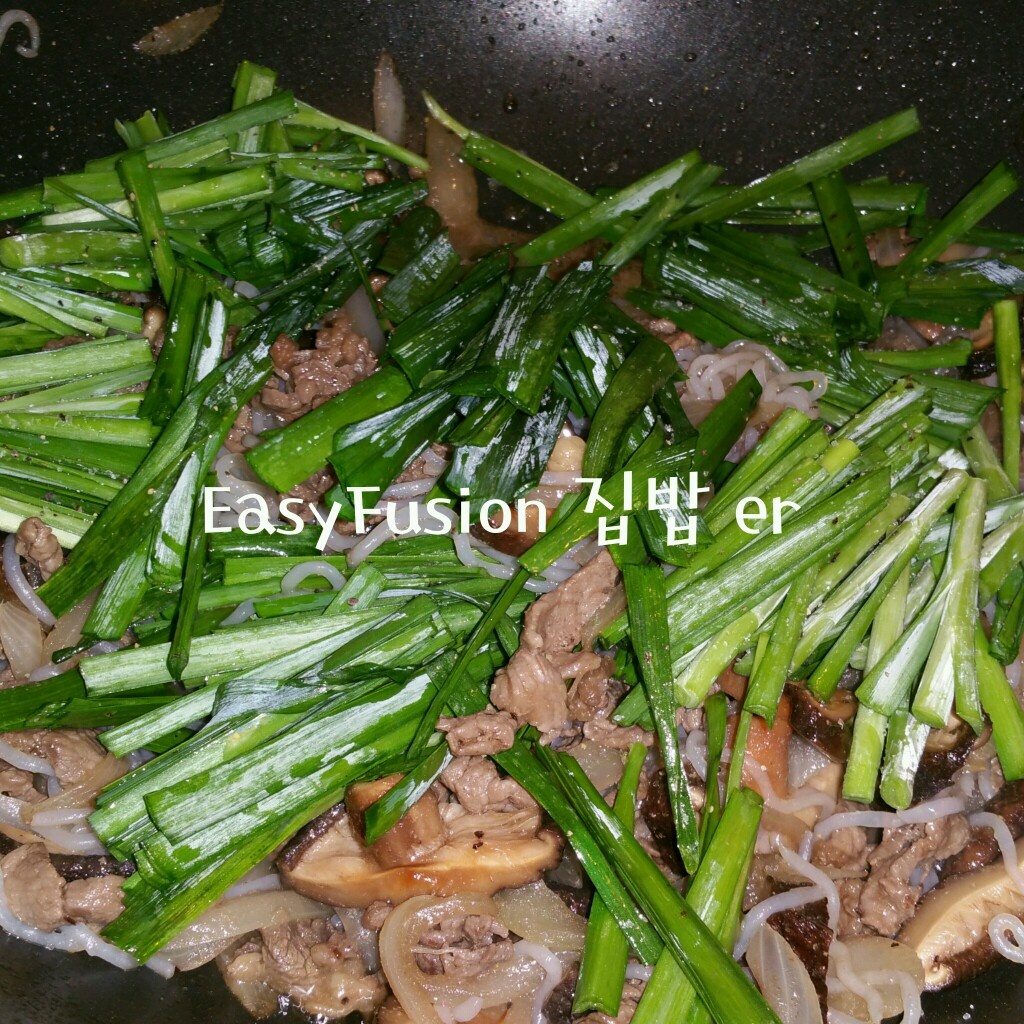 STEP 12/12Mix the chives while cooking them with residual heat. It's more savory and delicious if you put it on a plate with chili oil and stir-fried sesame seeds.
STEP 12/12Mix the chives while cooking them with residual heat. It's more savory and delicious if you put it on a plate with chili oil and stir-fried sesame seeds.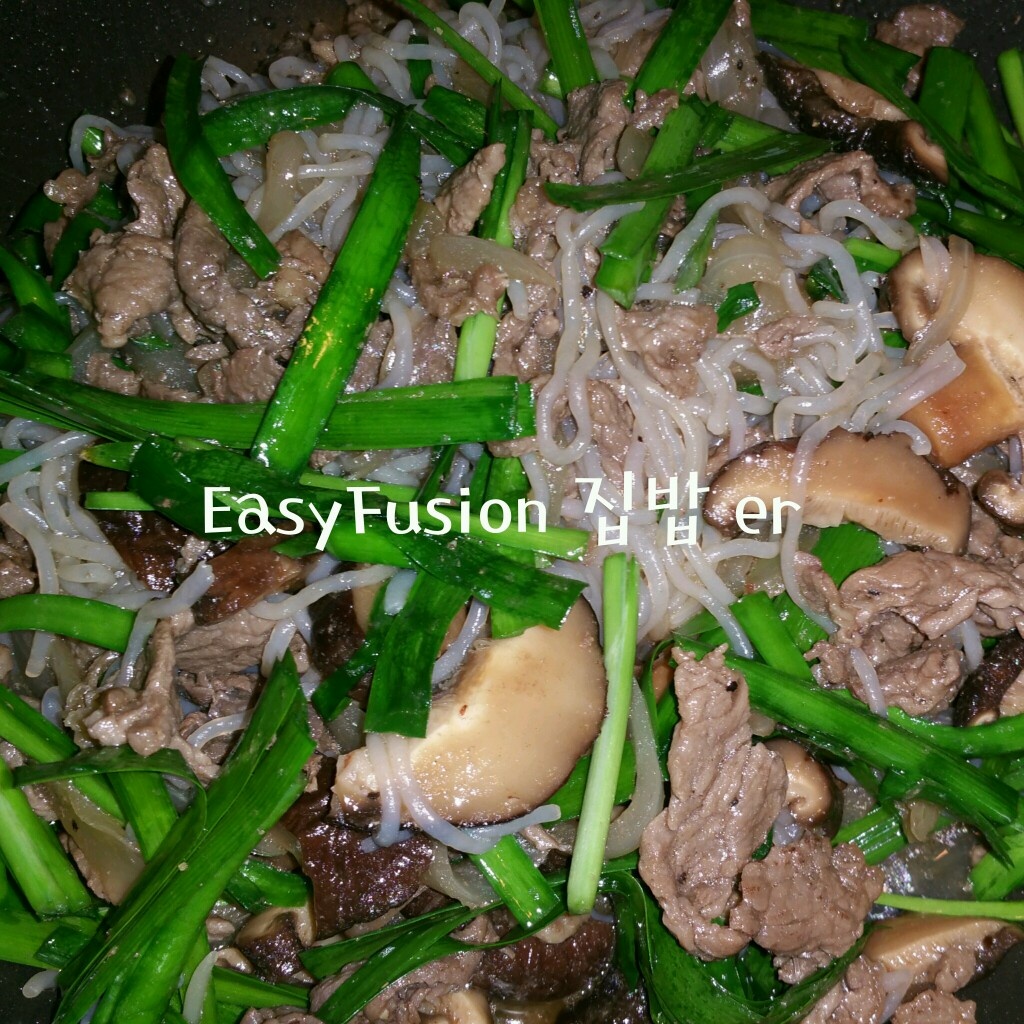 If you cook chives for a long time, they will become green and tough, so it is better to put them at the end and cook them with residual heat.
If you cook chives for a long time, they will become green and tough, so it is better to put them at the end and cook them with residual heat.
- Cooking review
-
5.00score
-
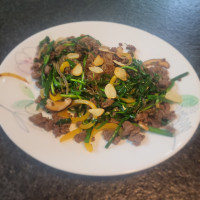 798*****scoreI ate a delicious meal after watching the recipe! ~^^~2024-02-09 18:24
798*****scoreI ate a delicious meal after watching the recipe! ~^^~2024-02-09 18:24 -
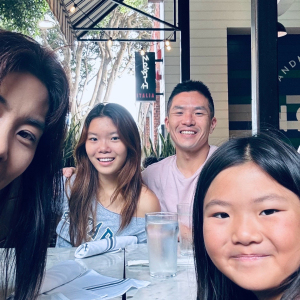
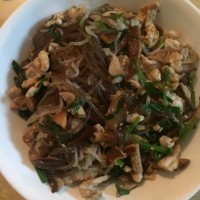 151*****scoreI didn't have a lot of konjac noodles, so I used to use half of the noodles, but it's simpler and better than I thought I thought it would taste good because it's simple, but I think the point is to smell it with ginger and add chili oil at the end. It really tastes like Chinese food. Thank you for the food2017-10-04 05:10
151*****scoreI didn't have a lot of konjac noodles, so I used to use half of the noodles, but it's simpler and better than I thought I thought it would taste good because it's simple, but I think the point is to smell it with ginger and add chili oil at the end. It really tastes like Chinese food. Thank you for the food2017-10-04 05:10
-
- stir-fried Rice Cake Recommended recipe
-
-
1
 [Self-cooking] Making super simple tteokbokki + honey flavor is4.92(514)
[Self-cooking] Making super simple tteokbokki + honey flavor is4.92(514) -
2
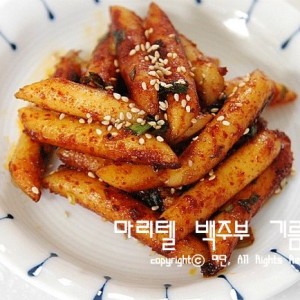 Following Maritel Baek Ju-bu's oil tteokbokki,4.98(40)
Following Maritel Baek Ju-bu's oil tteokbokki,4.98(40) -
3
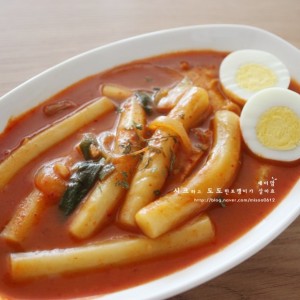 Soup tteokbokki - Soup of tteokbokki from a snack bar in front o4.89(213)
Soup tteokbokki - Soup of tteokbokki from a snack bar in front o4.89(213) -
4
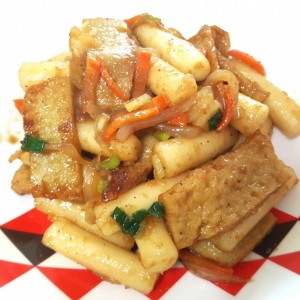 [Baby Snack] Making Soy Sauce Tteokbokki4.87(47)
[Baby Snack] Making Soy Sauce Tteokbokki4.87(47)
-
- Kimchi Recommended recipe
-
-
1
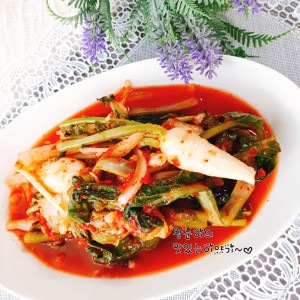 Short soup with young radish kimchi4.98(41)
Short soup with young radish kimchi4.98(41) -
2
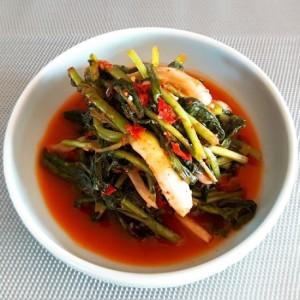 Yeolmu Kimchi Golden Recipe4.94(36)
Yeolmu Kimchi Golden Recipe4.94(36) -
3
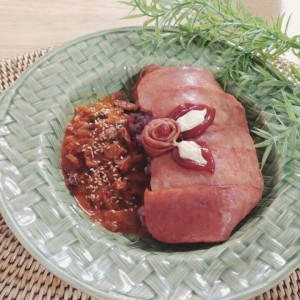 Copy the convenience store ticket, fried kimchi!4.93(118)
Copy the convenience store ticket, fried kimchi!4.93(118) -
4
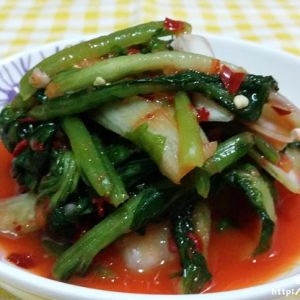 Yeolmu Kimchi with cold young radish kimchi4.71(38)
Yeolmu Kimchi with cold young radish kimchi4.71(38)
-